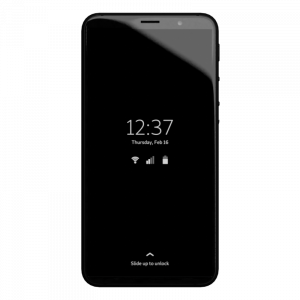Code is Power!
Purism
Latest posts by Purism (see all)
- A Quarter Century After Cyberselfish, Big Tech Proves Borsook Right - December 20, 2025
- PureOS Crimson Development Report: November 2025 - December 15, 2025
- Purism Liberty Phone Exists vs. Delayed T1 Phone - December 10, 2025
From Code to Control: How Big Tech Claims Ownership of the User
September 2025 has been a brutal reminder of a truth Purism has shared in various forms for years: code is power.
And when that code is closed, opaque, or controlled by vendors who value monetization over user rights, the end-user becomes the product, not the principal.
Purism Advocates for the Opposite: Transparency
Our teams come from decades of free software, open source development, security research, and privacy advocacy. We don’t just talk about transparency: we live it. Every line of our core stack is fully free/libre and open source, auditable, and community-reviewable.
Our engineers and contributors bring experience in GNU/Linux, kernel hardening, secure communications, and digital rights. That pedigree matters, because it means our covenant with users is verifiable, not rhetorical.
A Few Examples Where Big Tech Failed in September 2025 Alone
Android Keyboard App Leaks Keystrokes (Sept 10, 2025)
A third-party Android keyboard app was caught transmitting every keystroke—passwords, messages, and financial entries—to overseas servers. The very act of typing, the most intimate human-machine interaction, was silently weaponized.
Purism’s stance: Input methods should never be spyware. Our keyboard stack is free/libre and open source and auditable, ensuring no silent exfiltration. There are no “surprise APIs” or stealth updates that put your data at risk. You control your words—not a data broker.
iPhone Journal App Sync Leak (Sept 28, 2025)
Apple’s new Journal app, marketed as a safe space for reflection, was found syncing private entries—including mental-health notes—to iCloud without encryption at rest. What should have been a sanctuary became a liability.
Purism’s stance: Mental-health data deserves absolute privacy. Our local-first philosophy avoids silent cloud sync. Your thoughts remain yours. This breach proves once again that Big Tech—however well-intentioned—should never be entrusted with sensitive, personally identifiable information (PII).
iOS 18 Location Leak via Siri Suggestions (Sept 12, 2025)
A Siri Suggestions bug exposed precise location data to third-party apps without user consent. Apple patched it only after public outcry.
Purism’s stance: Permission boundaries must be enforceable. PureOS doesn’t allow silent cross-app data sharing.
Pixel Firmware Update Breaks Sandboxing (Sept 15, 2025)
A flawed Pixel firmware update allowed apps to rummage through other apps’ data caches—private messages, tokens, authentication secrets. The sacred wall of sandboxing was breached by the very vendor trusted to maintain it.
Purism’s stance: Sandboxing is sacred. PureOS enforces strict app isolation with no silent privilege escalation. Updates should strengthen trust, not dissolve it. Everything is transparent, auditable, and under your control.
Samsung SmartThings App Exposes Home Data (Sept 18, 2025)
A misconfigured API in Samsung’s SmartThings app leaked home-automation logs—door unlock events, camera triggers, occupancy patterns. The sanctity of the home became a broadcast channel.
Purism’s stance: Smartphones shouldn’t be surveillance hubs. Our privacy-first design avoids cloud tethering of local sensors. Your home is your castle, not a dataset.
The Pattern: Silent Betrayals
Each of these incidents differs in surface detail—keystrokes, journals, locations, caches, homes—but they share the same architecture of betrayal:
silent code paths, hidden from the user, exfiltrating what should never leave their control.
This is not about isolated bugs. It’s about design philosophy.
It’s about who writes the code, who signs the binaries, and who decides whether the user is master or subject.
Closed, opaque systems demand trust without proof. Big Tech’s model is ownership through opacity.
Purism rejects that model.
The Purism Advantage: Ownership Without Lock-In
Here lies the fundamental difference: with Purism, you own the device, the operating system, and the data always.
Local-First by Design: Your data lives on your device, under your encryption keys; not in a vendor’s cloud.
No Silent Sync: Unlike Apple’s iCloud, which defaults to tethering your photos, notes, and journals to servers you don’t control, Purism devices never move your data without your explicit consent.
No Vendor Lock-In: Big Tech thrives on dependency—iPhone to iCloud to iMessage, Android to Google Drive to Play Store. Purism breaks that cycle. Our systems are interoperable, standards-based, and open. You can migrate, back up, or export your data without begging a vendor’s permission.
Transparency as Proof: Because our stack is free/libre and open source, you don’t have to take our word for it. You can audit the code, verify the binaries, and confirm that ownership means what we say it does.
In Big Tech’s world, the vendor owns the keys, the servers, the defaults, and all your data.
In Purism’s world, you own the device, the keys, and your data.
Purism’s Philosophy: Code for Freedom
At Purism, we treat code as a reflection of your freedom, not binding contract.
Our software is free/libre and open source, auditable, and local-first. We refuse silent sync, silent privilege escalation, and silent sharing—because the moment you cede control of the code, you cede control of yourself.
Our developers have built hardened kernels, contributed upstream to GNU/Linux, and architected privacy-first mobile platforms. We don’t just advocate transparency—we embody it, line by line, repo by repo.
Closing Thought
September 2025 showcases yet another month Big Tech’s silent betrayals are made obvious.
From code to control, they continue to claim ownership of the user.
The only question that remains is this:
Do you want that control to belong to a multinational vendor, or to yourself?
At Purism, we choose the latter.
Purism Products and Availability Chart
| Model | Status | Lead Time | ||
|---|---|---|---|---|
 | Librem Key (Made in USA) | In Stock ($59+) | 10 business days | |
 | Liberty Phone (Made in USA Electronics) | In Stock ($1,999+) 4GB/128GB | 10 business days | |
 | Librem 5 | In Stock ($799+) 3GB/32GB | 10 business days | |
 | Librem 11 | In Stock ($999+) 8GB/1TB | 6+ weeks | |
 | Librem 14 | Out of stock | New Version in Development | |
 | Librem Mini | Out of stock | New Version in Development | |
 | Librem Server | In Stock ($2,999+) | 45 business days | |
 | Librem PQC Encryptor | Available Now, contact sales@puri.sm | 90 business days | |
 | Librem PQC Comms Server | Available Now, contact sales@puri.sm | 90 business days |
Recent Posts
Related Content
- A Quarter Century After Cyberselfish, Big Tech Proves Borsook Right
- Landfall: A Case Study in Commercial Spyware
- EvilAI Malware Exploits AI Targets Organizations Worldwide
- Sound Recorder App Now Available
- AWS Outage, Purism’s Answer is clear: Decentralize, Localize, and Empower Users to Own Their Digital Lives


